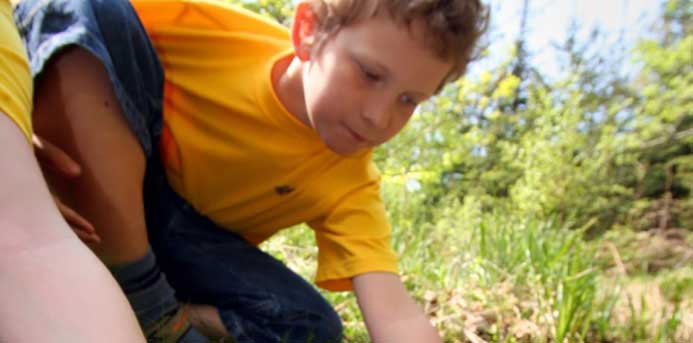Part of the description of Garrison Keillor’s Lake Woebegon is that “all the children are above average.”
Like a lot of jokes there’s truth to it: no child is merely “average.” Each is unique, with problems to overcome and strengths to develop. But when grades are calculated, there are indeed students who spend an entire childhood getting B’s and C’s and D’s, even when they’re really trying.
Evan was one of those children. He was a quiet, solitary boy who was often overlooked. He wasn’t any kind of problem, other kids accepted him, but he was always at the periphery.
In sixth grade, Evan went on a field trip to test water samples at a bog downstate. A lot of his classmates, whose boots had filled with bog water, described the experience as “disgusting.” But Evan told his parents he liked it.
He started riding his bike to the forest preserve. He brought home a salamander, and a huge leaf of skunk cabbage and a puffball mushroom from a friend’s back yard. He surprised his mother by referring to a beech tree across the street. She asked him if he could identify other trees. He could; birdcalls too.
In the spring, when his parents were looking for summer programs, they read about the Open Lands project in Lake Forest and enrolled Evan. He went camping and canoeing, learned about ecology. He raised money for Open Lands, worked restoring native habitats, and after several years volunteering, taught younger kids. He started drawing the plants and animals he observed.
There are children who struggle academically, but when it comes to hands-on learning, they absorb information effortlessly. Evan was one of those children. He got an A in biology and an A in art. His other grades were lackluster, because what he learned reflected his own interests, not the demands of a curriculum. The big change was in his self esteem and in his connection to the rest of the world through what he cared about. When he and his friends went camping senior year, it was Evan who was the leader.
Evan applied to a small western college where students design their own programs. On the basis of his interview, which reflected a deep knowledge of ecosystems and botany, and his portfolio of drawings, he was accepted.
On paper, Evan was an average student. But the planet Evan wanted to save was one of hands-on experience, and in that world, Evan was a star. So often, with children, it’s a matter of finding the right niche. A lesson we can all learn from studying ecology.
Does your child need help finding his or her niche? Sometimes it’s just a matter of finding the right volunteer activity. Check out our Better List for ideas.

